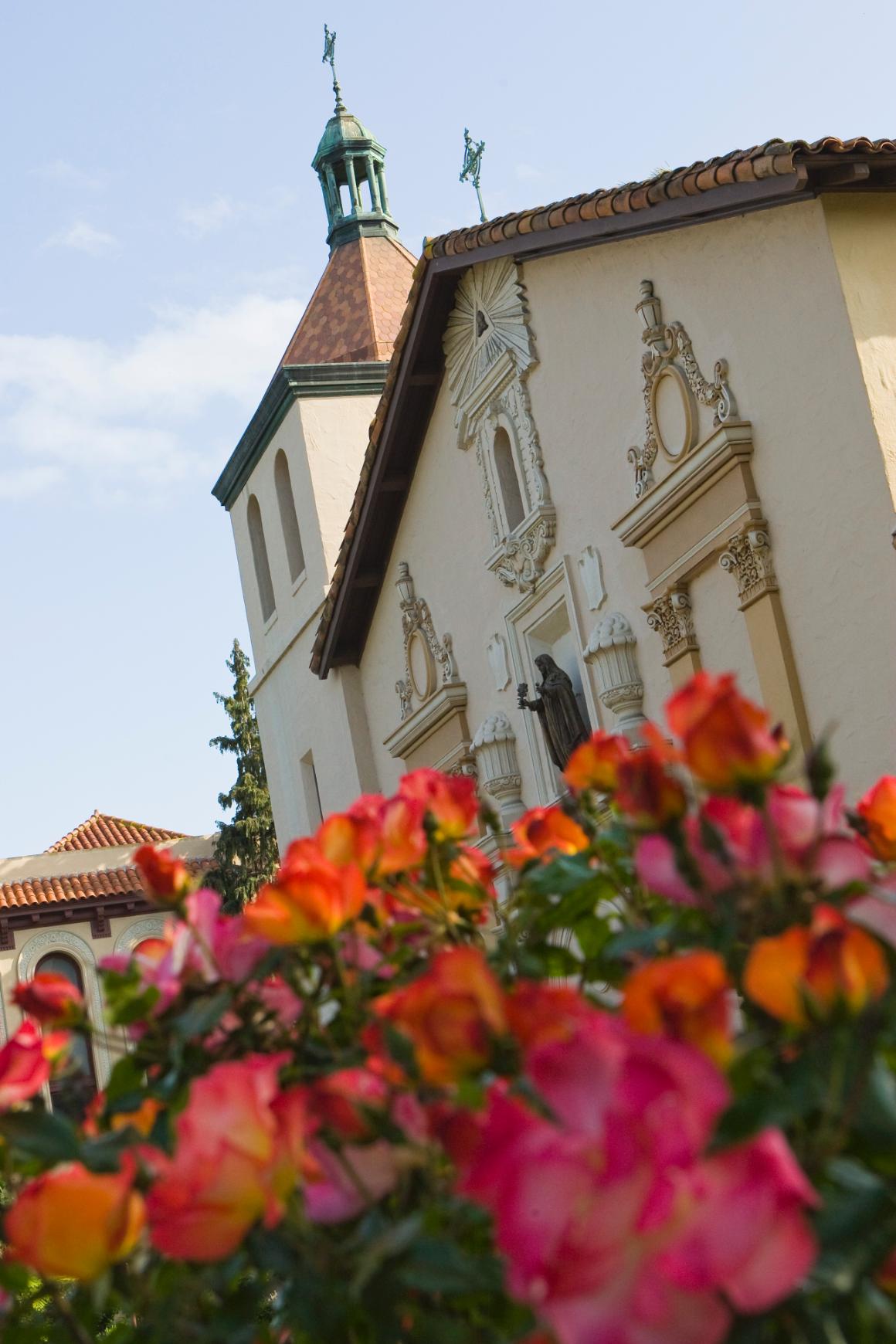
The Mission points not only to the past but also to the present and the future. Not only a reminder of our history and heritage, it is an active and functioning university chapel as well. It is the site where University students, faculty, staff, and alumni participate in Catholic religious services as well as in services of other faith traditions. It symbolizes Santa Clara University's desire to enhance and deepen—not simply preserve—its religious character.
Currents of change inevitably affect all human associations. Change forces growth and development if associations are to remain true to their founding impulses. As a Catholic, Jesuit university, Santa Clara also faces this imperative.
The contemporary identity of this Catholic University is being forged in an environment different from in the past. The formulation and realization of that identity involves a dialogue among all members of the University community. The Jesuits of Santa Clara offer these web pages to the University community as part of our participation in that crucial and engaging conversation.
The Jesuit tradition prizes the life of the mind, viewing it as a path to the integration of the intellectual and moral aspects of personal and social life. From the beginning, Jesuits believed "that scholarly excellence was vitally important because of the role it played in achieving moral excellence."
As historian John W. O'Malley, S.J., notes, "Even the study of the sciences and theology had a goal beyond speculation, a goal of service." Thus, according to O'Malley, an early Jesuit official observed that the order's immense commitment to education stemmed from a desire that "those who are now only students will grow up to be pastors, civic officials, administrators of justice, and will fill other important posts." To this end, Jesuit universities have always valued teaching, scholarship, and the varied accomplishments of their students.
Santa Clara stands firmly in this Jesuit tradition. In its Statement of Purpose, the University declares its goal as "the preparation of students to assume leadership roles in society" through liberal, professional, and pre-professional education. The entire educational experience fosters the cultivation of intellectual, aesthetic, moral, and spiritual values through a disciplined and imaginative engagement with culture in its many manifestations. As a modern university standing within the mainstream of U.S. higher education, Santa Clara continues to offer an education inspired by the Renaissance and Jesuit ideal of humanitas, the aim of which is to cultivate persons engaged in a wide variety of occupations for service to humanity.